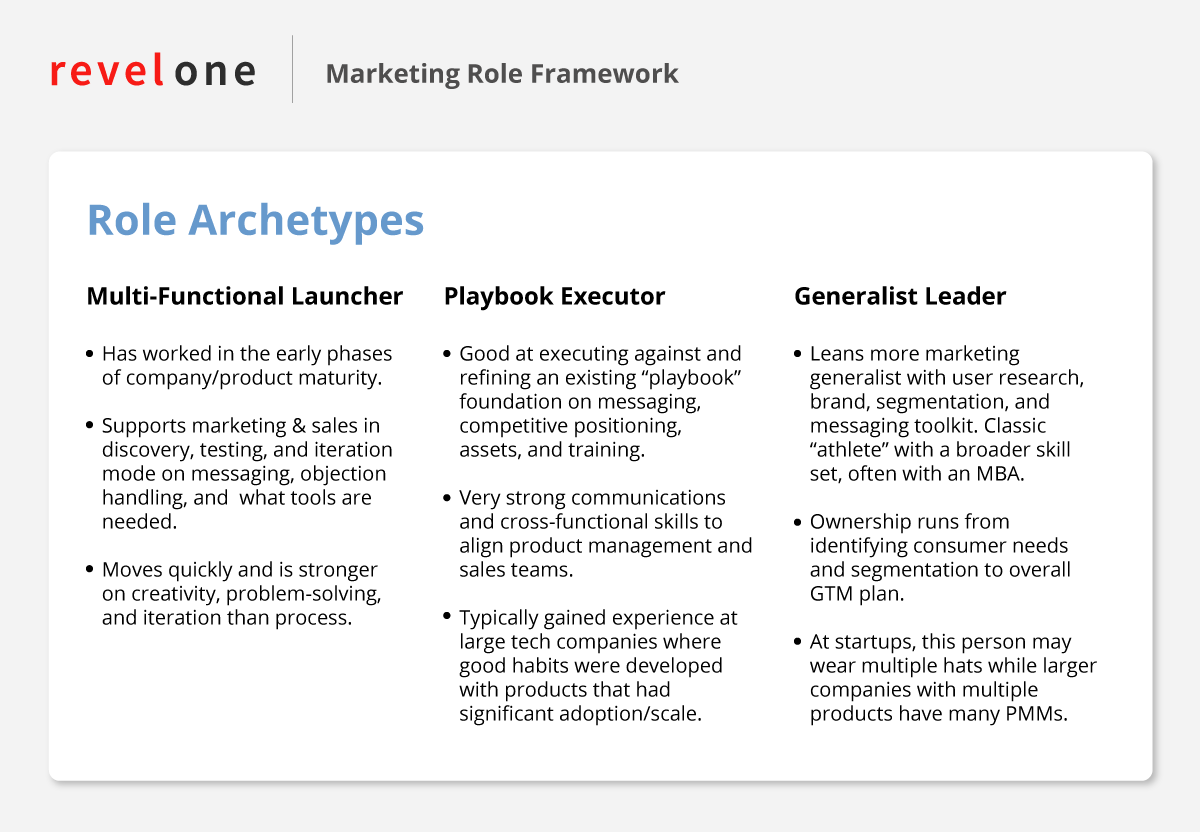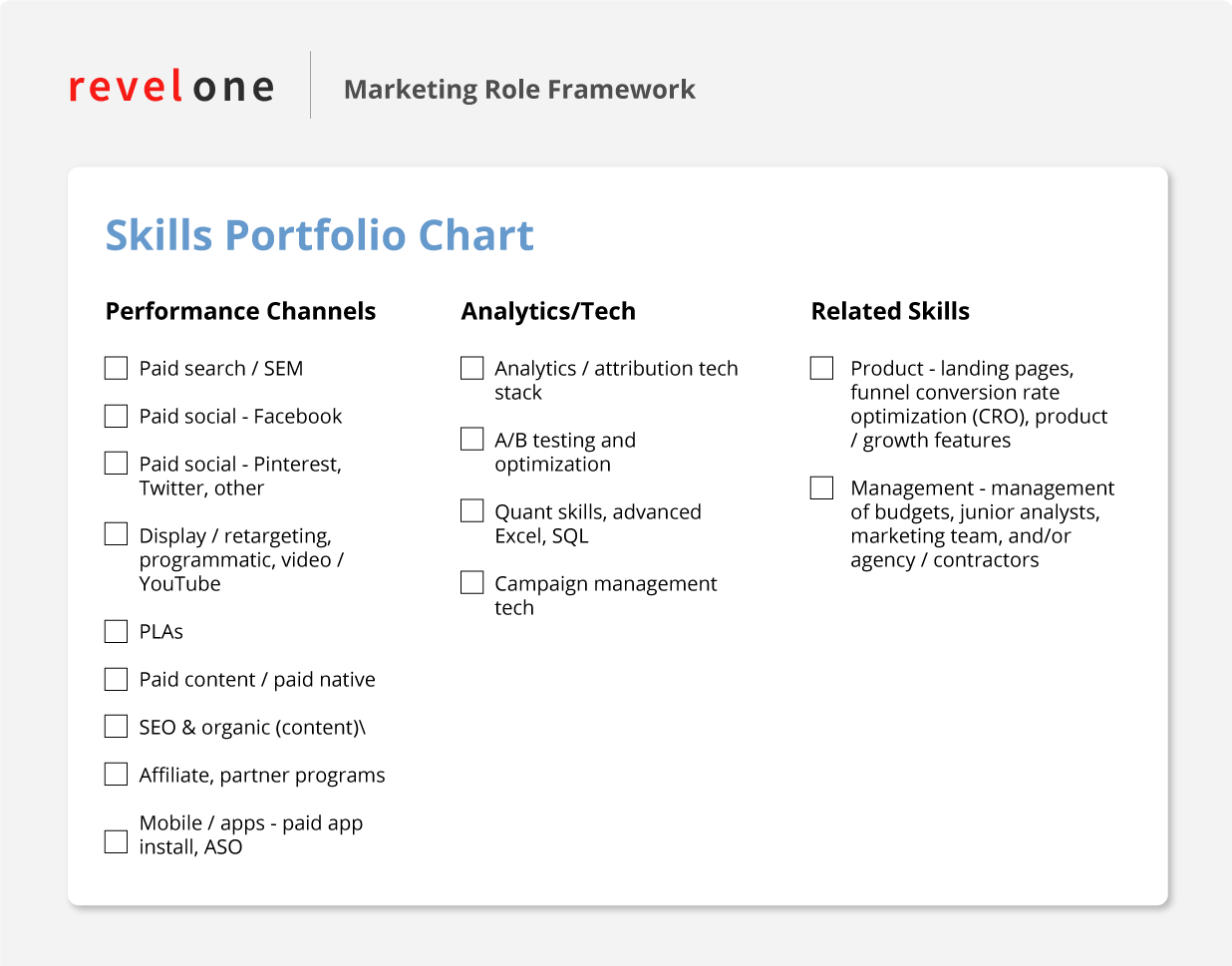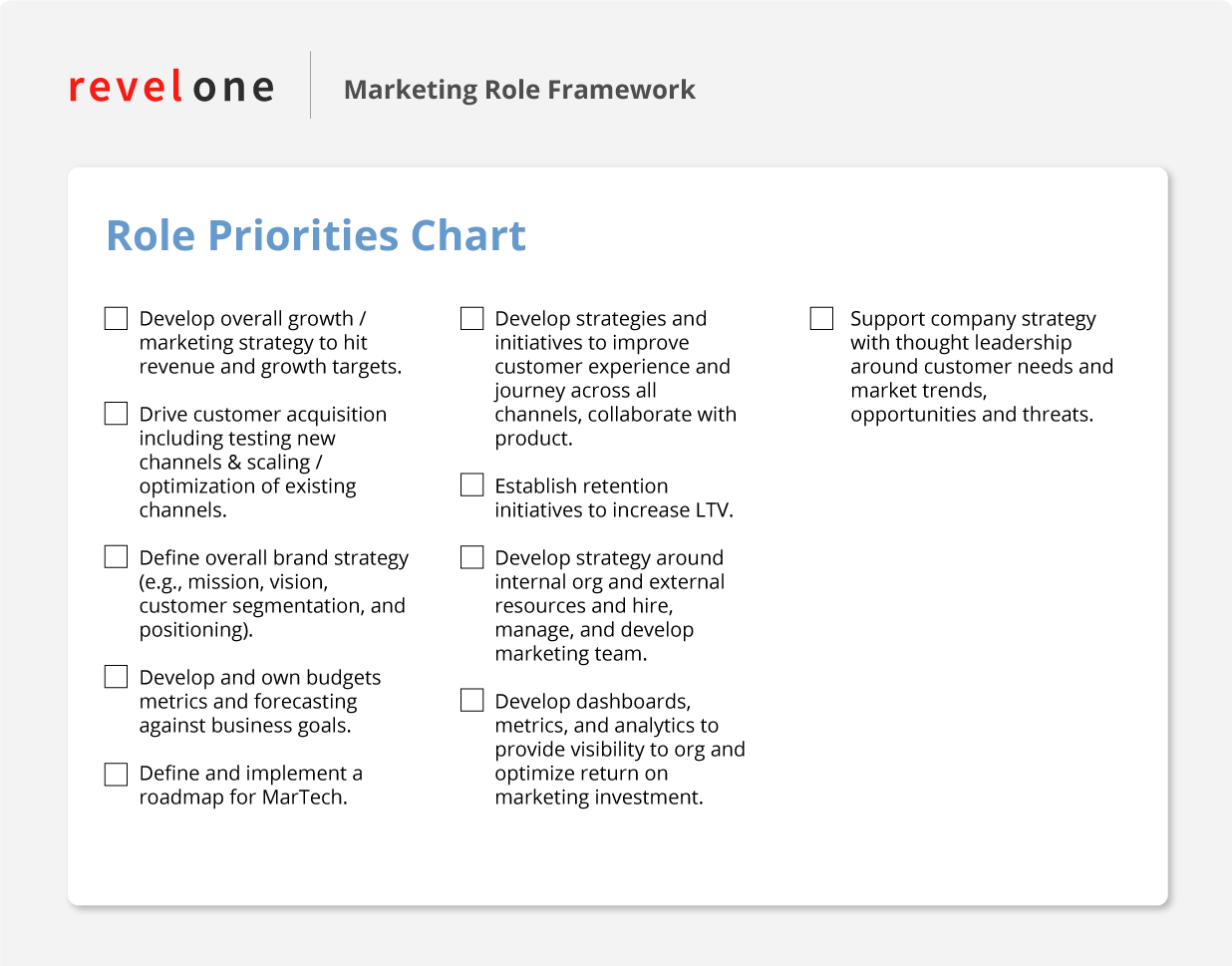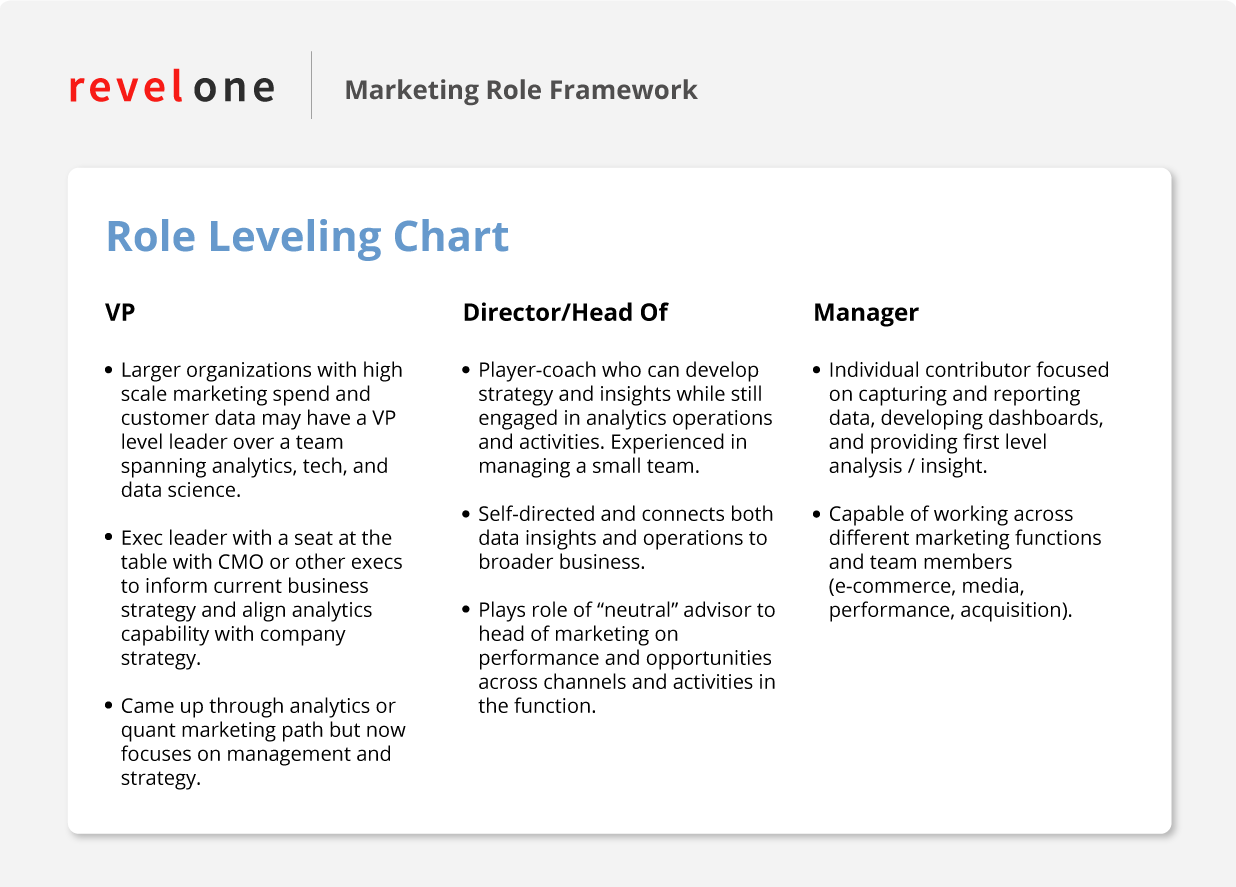Properly defining marketing roles is harder than ever. The digital landscape is changing rapidly and, as a result, marketers at all levels are specializing to stay current. This complexity means that there are multiple ways to bundle skills within a role and role definitions vary by product type and company stage. Therefore, too often hiring managers poorly define key role requirements, or they seek skills that don’t typically nest together in candidates. This ends up wasting time and leading to long, difficult searches.
Defining roles correctly is paramount to effective recruiting and ensuring that the new hire will be successful. We created the RevelOne role framework to help you think strategically about role definition and avoid common mistakes.
RevelOne Role Frameworks:
- B2C Marketing Leader
- B2B Marketing Leader
- Brand Marketing
- Performance Marketing
- Lifecycle & CRM
- Marketing Analytics
- Product Marketing
- E-Commerce
- Business Development & Sales
- Growth Marketing
- Partnerships
Each role framework includes typical role archetypes, common titles, leveling advice, key skill areas, and typical business objectives for the role. This article will help you understand how to leverage this framework to optimally scope marketing roles.
1. Role Archetypes
We see a wide variety of skills and a growing number of responsibilities being asked of marketers today. For each role, people often spike in some areas over others. We created “role archetypes” so you can see the most common profile types that are currently on the market and identify the best profile for your needs.
Below are examples of role archetypes taken from our Product Marketing Role Framework.
2. Define Specific Outcomes
Too many hiring managers create unprioritized or unrealistically long lists of role requirements, which can set them up for failure in a competitive job market. Instead, we recommend leaders start the hiring process by clearly defining the top three outcomes they expect from the candidate in their first 12-24 months. Be as specific as possible and avoid requirements like “grow revenue by 50%,” which is not actionable in a search. These outcomes should then be mapped to core skills and role priorities.
3. Map Skills & Priorities to Outcomes
Map the underlying skills needed to achieve your three desired outcomes. Carefully prioritize which skills are must-haves and which are nice-to-have or can be learned. Be sure to look at all the requirements holistically to ensure you are seeking skills sets that tend to nest together in real-life candidates.
Our Skill Portfolio Chart includes the most common skills for each role. Use the chart to select the most desired skills for your open role.
The examples provided below are taken from our Performance Marketing Role Framework.
Our Role Priorities Chart includes the most common priorities for each role. We recommend that you select the top 3-5 role priorities.
The examples provided below are taken from our B2C Marketing Leader Role Framework.
4. Determine Role Level
Scoping roles at the wrong level is the most common mistake we see among first-time CEOs and can derail a search. If you’re hiring a CMO or VP of Marketing, you need to be prepared to provide them with a team and resources since the best ones want some leverage and scale to make a meaningful impact. If you want a builder who has their hands on the wheel, hire a Director with a player-coach mentality. Use our Role Leveling Chart to determine the level of your role.
The examples provided below are taken from our Marketing Analytics Role Framework.
About RevelOne
RevelOne is a leading marketing advisory and recruiting firm. We do 300+ searches a year in Marketing and Go-to-Market roles from C-level on down for some of the most recognized names in tech. For custom org design, role scoping, and retained search, contact us.















